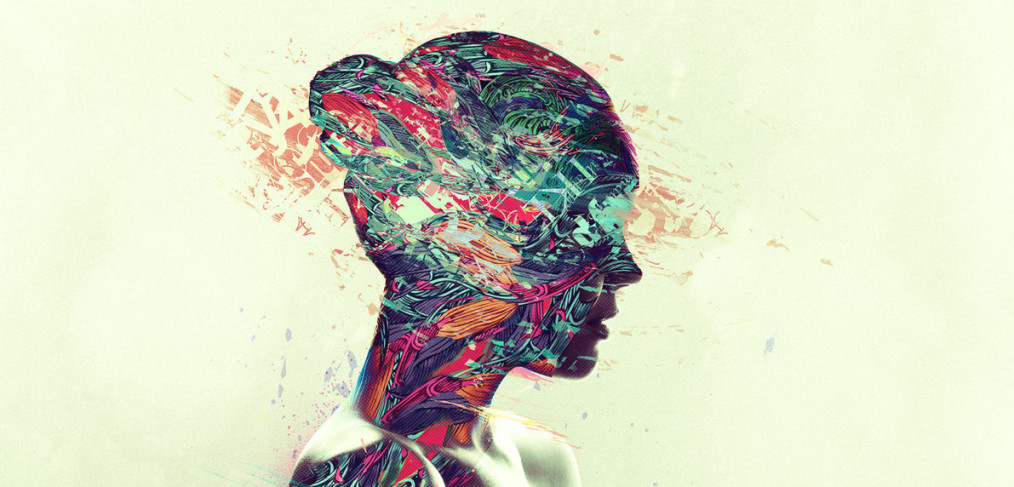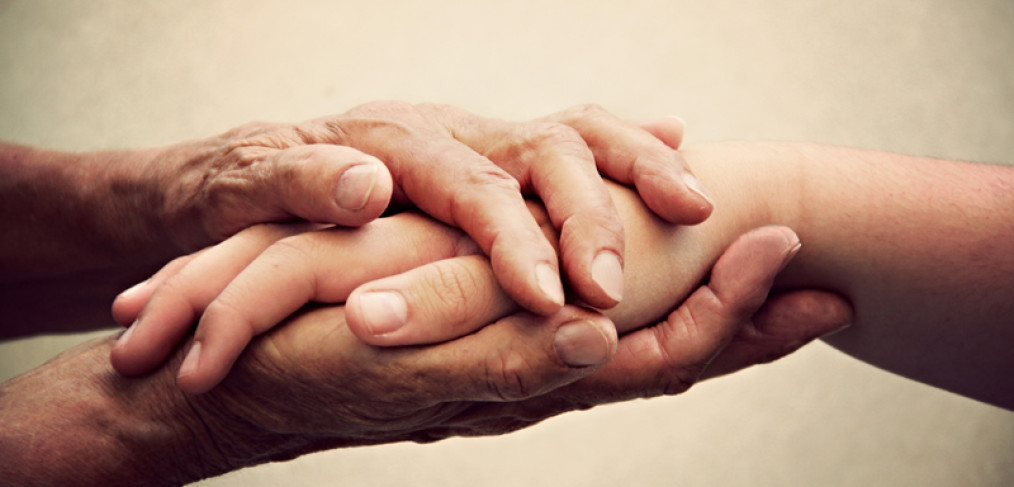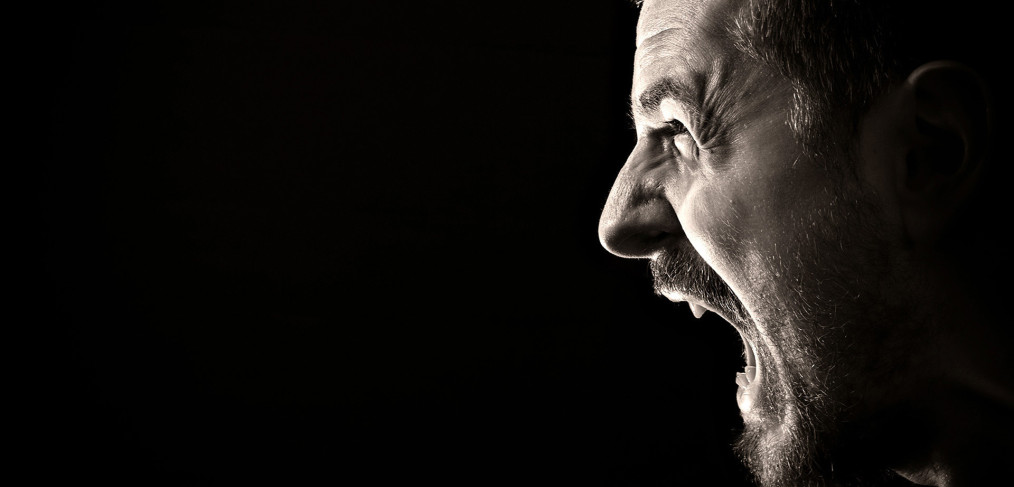Emotions spontaneously arise each day despite our efforts to control them. They often surface without warning, whether we want them to or not. Fortunately, many of these emotions translate as pleasurable ones – feelings of joy, contentment and love. However, like it or not, there are times when less than desirable emotions come forth – anger, frustration or possibly fear. But experiencing these unpleasant emotions is not necessarily a bad thing.
Emotions play a major role in who we are as individuals and are the driving force behind how we interpret events we encounter. The question then becomes, is our reaction based on reality?
For example, to examine someone’s idea of perception I may announce, “It’s winter again and the snow is coming.” I will no doubt receive a diverse assortment of responses. For some, the thought of winter brings about great excitement: “I can’t wait for the snow! I can’t wait to get out on the ski slopes!” .. “It’s my favorite time of the year. I can’t wait for the holidays!” While others have an opposite response: “Oh no! It’s cold and my hands and feet are always freezing. I have to bundle up every time I go outside and it is just miserable.” .. “All I can think about is the added chore of shoveling the driveway.” For some, the winter may also be associated with a tragic incident that occurred during a snowstorm, so the winter months and snow act as a reminder of that grievous event.
Responses to the previous statement can vary quite a bit. Although we can view this as nothing more than different points of view, the question is, why are there so many different opinions and where do they come from? Is any one position right or wrong? Are we all right?
Of course there are many obvious reasons why someone might experience a particular feeling, but there is also something a bit deeper. It is not just about how we interpret the spoken word, but also how we perceive it. How we react to the statement, “It’s winter again and the snow is coming,” is based on our interpretation, which in turn is going to determine the emotions that are partnered with the statement.
Is our reaction based on reality?
In the simplest of terms, we can conclude that the reason for so many differing points of view is that we each possess our own personal life experiences. There are many books, published research studies, and countless opinions surrounding this topic, but basically it all comes down to personal recollection and what we remember about various life events, what we felt at a given moment in time, and what we may have seen.
So, what drives the emotions that are based upon our life experiences? What is the connection? Why is it that we can have such a strong reaction to a single statement based on a past experience that in reality may not have occurred exactly as we remember?
How many times have you decided not to do something because it brings up a memory of a past event that you do not want to revisit. “I just can’t do it,” you say. But with this attitude, you could be closing doors on some amazing opportunities that could greatly enhance your life, simply because you fear a negative outcome when, in fact, the opposite could very well be true. Many of us live our lives in this uneasy state and then find ourselves incapable of responding to a particular situation. Often, in a case such as this, we begin to listen to the opinions of others; but of course the opinions of other individuals are based on their personal experiences, interpretations, and perceptions.
There are those like Dr. Candace Pert, author of Molecules of Emotion, and Dr. Bruce Lipton, author of The Biology of Belief, who believe that our bodies are alive with emotions down to a cellular level. However, saying that emotions are encapsulated even to this level may still be a stretch because cells, the foundation of physical life, do not account for our energetic level. Or do they?
What really drives our emotions?
Dr. Candace Pert found that every cell of our body expresses the emotions that we experience. In other words, emotions are not just located in the brain in the form of interpretations, they exist throughout our bodies. If this is true, then there must be an energetic force present. But where does this energy come from?
I believe that our essence is indeed a non-localized interrelated dependent mechanism that only works optimally when all parts are fully functional. What does this mean? It means that while most of modern medicine focuses solely on the physical, down to the cellular level, without a connection to the energetic level true human health can never be achieved. How do we know if there is a healthy functioning connection between the two? The answer lies in our emotions.
Emotions in and of themselves are really nothing more than a type of communication system that allows us to connect the different aspects of ourselves.
Emotions, in a way, are alive. They are the language of our totality, but they need to be interpreted, and this can be tricky. On the surface, this sounds like an easy task, but you don’t have to dig too deep to realize that our interpretations may change with varying circumstances. This is why we often seek counsel to help us organize and better understand our own emotions, and why at times, we seem unable to control them.
There are many instances when two individuals may have the exact same experience, but because interpretation is unique to each, they will not describe the particular experience in exactly the same terms. One may say, “I just don’t understand why she is so upset over this . . . she must be an overly dramatic person!” While the other may say, “I just can’t understand why he doesn’t seem to care about what just happened . . . he must be cold-hearted.”
So, here we are again, who is right and who is wrong? Is one more enlightened perhaps than the other? Well, this is where it gets a bit tricky.
What do most of us think of when we hear the word, “enlightened”? Going along with the same theme thus far, our definition is dependent on how we view ourselves. What does enlightenedmean to the Christian? The Buddhist? The Muslim? The yogi? The naturalist? We could go even more superficial. How about the meaning of enlightened to the Republican or the Democrat or even the Capitalist and Socialist? And don’t all these groups’ arguments and debates raise strong emotions? Each strongly believes to their core that the opposition is wrong. Why can’t they see that they are wrong and we are right?
Each of the aforementioned groups (and the list is very short sighted as any and all groups apply here,) has their own theory surrounding what they “know” without a doubt to be the truth. If any are confronted with an idea outside their dogma of truth, what emotion do you think comes forward? Unfortunately, this is the cause of many wars, and also the reason that religion and politics are thought of as taboo topics for light conversation. So, now arises the obvious question, how can all of the different associations have the ownership of truth? There must be more to this than what we see on the surface.
What about those who move from one affiliation to another? Many times this happens after some sort of traumatic event. I have seen first hand a sudden change in viewpoint and how this “change” literally led one to be alienated from those in their original group. If they “knew” the truth in one group and suddenly now “know” the real truth…then which is the actual truth?
Many believe that “real” truth can never change.
I am one who also believes this to be true; however, I of course feel a need to put a spin on it. Let me explain:
Let’s say that “real” truth is found on a small island just like the one depicted on the TV showLost. In the TV show, there is an island that moves in and out of what we perceive as reality. This “reality” includes our current perception of time and space along with what we cannot yet perceive. For example, trying to precisely define the 4th dimension would be an extremely difficult task because we could only interpret the 4th dimension on the basis of our understanding of the 3rd dimension.
Using a quantum physics definition, this island is a real place that never changes. It only “appears” to change as we view it from the outside looking in. Some of you reading this may be a bit confused already, whereas others may find my analogy quite simplistic. Imagine if you would, the type of artwork that requires you to blur your vision in order to see the image emerge from what on the surface looks like nothing more than colored dots.
The moment you see the picture, it feels almost like a revelation. The picture did not all of a sudden appear, it was there all along. It was your perception that allowed you to see the image. The same theory applies to the example of the island. The island is always there, exactly where it should be. To someone on the island, life seems normal. But to us on the outside looking in, the island seems more mythical than real.
In order to find your way to the island, a series of events must first occur. You must first make the decision to go on your quest. You have to go outside of your cage of perception filled with boundaries and allow your mind to expand. I emphasize the word your because forward progress can only be made when you are moving forward on your quest. And let’s say that you have made the decision to move forward and currently live in the United States. And another person who lives in China has also just made the decision to move forward. And there is yet another ready to go who happens to reside only a few miles from where this island was last known to exist.
Must these three individuals travel the same road to reach the island? Which of these three people lives on the road best to begin the journey–the one in the United States? China? Or that spot a few miles away? Of course logic dictates that the spot a few miles away is likely the best place to begin. But is it?
Before I continue, I would like to present this to you.
When we are talking about how we feel and the notion that emotions are interpretations or perceptions of some sort of reality, is it possible that we can arrive at the truth from many different locations?
Since this island has no constraints surrounding space or time, and being that space and time are a human condition, unbeknownst to you this island could very well be right in front of you. It is also a possibility that you could in fact be on the island right now. But since the reality of time is not inter-correlated, you are unaware of the presence of the island.
So, the answer to the questions of who is closer to the island? and is there a single road that leads to this island? is . . . no one is closer and no, there isn’t.
In order to take the first step in the pursuit of this island, we must open our minds and accept that this island is real. It is not the truth itself that is changing, but rather the perception of the truth that changes. It is the perception of the individual in pursuit of the truth that leads to transformation. And if we relate this to health,
We must recognize that we possess the power to heal ourselves and that certain emotions give us life, whereas certain emotions don’t!
So, how do you know when you have arrived at the truth? There is not a simple answer to this question because the journey to the island may very well be a never-ending one. Because we are fluid and our thoughts are fluid, each perception of the truth is a single segment on the path moving us toward our own realities of truth at any given time. The way in which you think and perceive things is hopefully very different today from that of 10 or 20 years ago, even just last year or yesterday. And once this realization comes to the forefront, there is no turning back. It could even be said that you have become enlightened; enlightenment also being a process.
In my story, my truth lies in the fact that I cured myself from Multiple Sclerosis 100 percent naturally. How could I go back to any other truth at this point? That would be disastrous for me.
Where we go terribly wrong is when we place judgment on others whom we think, or worse, “know,” are misguided in their views, are unenlightened. It is as though we are all on a staircase and everyone is exactly where they need to be
If our own perception of the truth can change, how could we possibly pass judgment on another?
Truth revolves around whatever one is feeling in any situation. What is the feeling or emotion that we associate with judgment? Is it possible that at the very moment that we pass judgment, the “island” of truth has moved? What happens to our perception when we do this? It is as though we have become stuck in proverbial quicksand leaving us cemented in the muddled sands of our own emotions. Emotions thicken and slowly solidify. And sadly, because change can be difficult, many of us look for reassurance by aligning ourselves with the things and people that seem to justify our feelings and confirm our emotions. Change can feel really uncomfortable and may lead to a sense of loneliness.
On the other hand, during periods of change, we may also encounter wonderful experiences that we have not yet imagined. But first, the initial step must be taken; the one in which you begin to believe that there is something more than just the island and you are prepared to go on your quest to find your truth.
–
www.choki.org
Follow us on Facebook!
Author: Dr. Michelle Kmiec l Wake Up World






